How Deep This Grief

I HAVE always found the idea of “self-expression” to be rather solipsistic, embarrassing even. It smacks of arrogance, this idea that I would have to express all the special wonder that exists inside me, and that people might want to listen. Maybe this comes from spending the majority of my life in the Midwest, the land of self-effacement. Maybe it comes from being raised, for the most part, by a single mother who, through my formative adolescent years, took care of three children and her aging father. When food or shelter isn’t a given, you tend to develop a quick eye-roll reflex when notions of individual creativity come up.
And yet from an early age I also felt the desire to write, to tell stories. It wasn’t until college that I began to figure out how to reconcile this seeming contradiction, when a writing teacher, the essayist Joe Bonomo, scrawled a quote from V. S. Naipaul on the board: “No one cares for your tragedy until you can sing about it.” This was a moment of revelation as huge as any I’d experienced in my then nascent writing life. The words on the blackboard transformed the idea of writing from self-expression into something I was much more comfortable with: a job.
A few years later, in graduate school, I had the pleasure and sometimes terror of studying for a semester with Frank Conroy, famed writer and infamous writing teacher. Frank’s instructional antics were legendary: tearing up student manuscripts in workshop, making people cry. By the time I took his class, he was nearing the end of his life, and it might have been that he’d lost some of the fire he’d had in his prime. He was still Frank, though, and he’d still go after a piece, sometimes directly and sometimes more slyly, lulling the nerve-racked writer into a false sense of literary success before going in for the kill.
Diese Geschichte stammt aus der September - October 2017-Ausgabe von Poets & Writers Magazine.
Starten Sie Ihre 7-tägige kostenlose Testversion von Magzter GOLD, um auf Tausende kuratierte Premium-Storys sowie über 8.000 Zeitschriften und Zeitungen zuzugreifen.
Bereits Abonnent ? Anmelden
Diese Geschichte stammt aus der September - October 2017-Ausgabe von Poets & Writers Magazine.
Starten Sie Ihre 7-tägige kostenlose Testversion von Magzter GOLD, um auf Tausende kuratierte Premium-Storys sowie über 8.000 Zeitschriften und Zeitungen zuzugreifen.
Bereits Abonnent? Anmelden

Literary MagNet
When Greg Marshall began writing the essays that would become his memoir, Leg: The Story of a Limb and the Boy Who Grew From It (Abrams Press, June 2023), he wanted to explore growing up in Utah and what he calls \"the oddball occurrences in my oddball family.\" He says, \"I wanted to call the book Long-Term Side Effects of Accutane and pitch it as Six Feet Under meets The Wonder Years.\" But in 2014 he discovered his diagnosis of cerebral palsy, information his family had withheld from him for nearly thirty years, telling him he had \"tight tendons\" in his leg. This revelation shifted the focus of the project, which became an \"investigation into selfhood, uncovering the untold story of my body,\" says Marshall. Irreverent and playful, Leg reckons with disability, illness, queerness, and the process of understanding our families and ourselves.
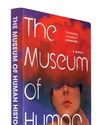
THE MEUSEUM OF HUMAN HISTORY
READING The Museum of Human History felt like listening to a great harmonic hum. After I finished it I found the hum lingering in my ears. Its echo continued for days.
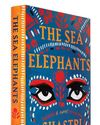
The Sea Elephants
SHASTRI Akella's poised, elegant debut, The Sea Elephants, is a bildungsroman of a young man who joins a street theater group in India after fleeing his father's violent disapproval, the death of his twin sisters, and his mother's unfathomable grief.
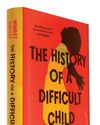
The History of a Difficult Child
MIHRET Sibhat's debut novel begins with God dumping rain on a small Ethiopian town as though. He were mad at somebody.
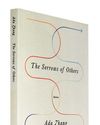
The Sorrows of Others
AS I read each story in Ada Zhang’s brilliant collection, The Sorrows of Others, within the first few paragraphs— sometimes the first few sentences— I felt I understood the characters intimately and profoundly, such that every choice they made, no matter how radical, ill-advised, or baffling to those around them, seemed inevitable and true to me.
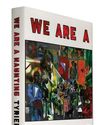
We Are a Haunting
TYRIEK White’s debut novel, We Are a Haunting, strikes me as both a love letter to New York City and a kind of elegy.

RADICAL ATTENTION
IN HER LATEST BOOK, THE LIGHT ROOM: ON ART AND CARE, PUBLISHED BY RIVERHEAD BOOKS IN JULY, KATE ZAMBRENO CELEBRATES THE ETHICAL WORK OF CAREGIVING, THE SMALL JOYS OF ORDINARY LIFE, AND AN ENGAGEMENT WITH THE NATURAL WORLD WITHIN HUMAN SPACES.

The Fine Print
HOW TO READ YOUR BOOK CONTRACT

First
GINA CHUNG'S SEA CHANGE

Blooming how she must
WITH ROOTS IN NATURE WRITING, ENVIRONMENTAL JUSTICE, POETRY, AND PHOTOGRAPHY, CAMILLE T. DUNGY'S NEW BOOK, SOIL: THE STORY OF A BLACK MOTHER'S GARDEN, DELVES INTO THE PERSONAL AND POLITICAL ACT OF CULTIVATING AND DIVERSIFYING A GARDEN OF HERBS, VEGETABLES, FLOWERS, AND OTHER PLANTS IN THE PREDOMINANTLY WHITE COMMUNITY OF FORT COLLINS, COLORADO.